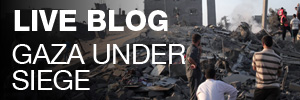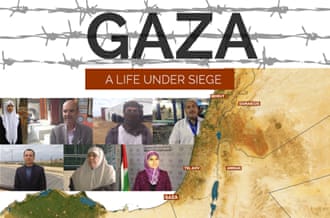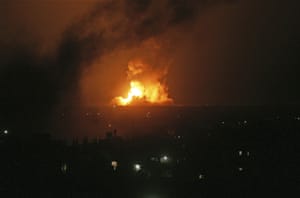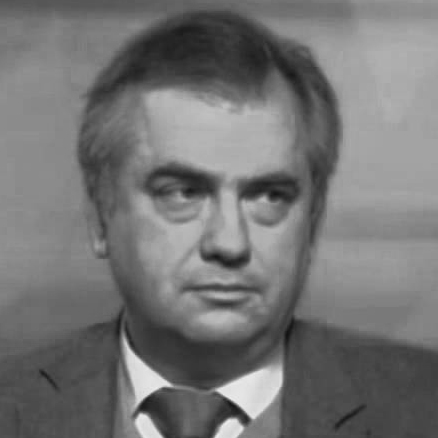How it started in Gaza |
PM Benjamin Netanyahu had to seek a way out of isolation.
Last updated: 12 Jul 2014 10:52
|
|
|
|
|

More than 100 people have been killed in Gaza since Israel launched its aerial assault on the Strip [EPA]
|
| Beginnings matter. Questions about culpability and responsibility, about the narrow cynicism that defines so much of life in the Gaza Strip, sequence and motive - they all go to beginnings. Why are Israeli men and women battering and gnashing lives and livelihoods in that prison camp? How did it start? Why are they killing? What are they after? How will it end? The answers are embedded in our crusty beginnings. How it started In the beginning, Zionists invaded Palestine. They expelled the Palestinians and Gaza, an ancient place that hosted Ramses II, Alexander the Great, and Salahuddin, became a tent city. A wasteland for the dejected and destitute. It didn't take long for Palestinians in Gaza to begin to fight to reclaim their homes from the Ashkenazis that displaced them. The Fedayeen - refugee militiamen - commenced with overnight raids as soon as the shock of their ignominious defeat began to wear. The first Israeli massacre in Gaza occurred in 1956. My father was a small boy at the time, but he remembers how the men were rounded up and shot. Today, his grand-nephews and -nieces, also refugees, also born in camps, cower in terror as the third generation of Ashkenazis in Palestine shows them their place. Life in the shadows, balanced precariously on obsidian with fire on either side - that's their inheritance. The latest round Among Israeli elites, Gaza is everything to everyone. Israeli politicians attack Gaza to enhance their electoral appeal. They use it to muzzle the opposition, to preserve a coalition or to distract from a domestic scandal. Israeli generals like to invade to provide troops with "battle" training or to test new wares, and to debut new formations and tactics; Hamas is not Hezbollah, after all. Jewish-Israeli scientists, meanwhile, coordinate with the army to use the territory as a convenient testing ground for advanced, experimental technologies. Corporate Israel later repackages those technologies for global export. Those are the relationships - the status quo. The recent move towards Palestinian reconciliation undertaken by the Hamas and PLO leaderships, threatened to end the political - if not material - isolation of Gaza. It posed a risk to the current state of things by providing Hamas, a political movement which came to power through elections, with a means for re-entering the realm of international legitimacy. Once the Americans and Europeans agreed to recognise the new caretaker government, Israeli Prime Minister Benjamin Netanyahu began to seek a way out of his new, uncomfortable isolation. He could not attack the Palestinians solely for their political reconciliation - the Americans would admonish him for that. Nor, to his great consternation, could he convince world powers to repeal their endorsement of the new government. Desperately, he sought a way out. Restoring Netanyahu's balance It came in the form of tragedy. When the three Jewish-Israeli settler teenagers disappeared in the West Bank, the Israeli leadership claimed that they were still alive. Through its prerogative as the enforcement vehicle of Israeli apartheid, the army spent three weeks smashing into hundreds of homes and terrorising their occupants in the search for the three youths. More than 500 Palestinian men were rounded up and imprisoned as Netanyahu clamoured for the teenagers' return and inveighed against Hamas, the group he claimed kidnapped the youths. No evidence was offered. Only bluster, bombast, and fatalistic conviction delivered in a sonorous tone of voice. As Max Blumenthal has documented, it was all a shameful and cynical political show. The Israeli leadership knew within the first day of their disappearance that the youths were dead; bullet holes, blood samples and a telephone recording provided evidence of what happened. But the ever-receptive Jewish-Israeli public demanded revenge and by the time the extent of the sham was revealed, the Israelis had killed nine people in the West Bank and three more in the Gaza Strip through missiles they fired in "retaliation" for the West Bank murders. Naturally, the Palestinians availed themselves of theirright to self-defence. They used crude, unguided workshop missiles to reclaim the balance of fear that existed - thereby providing the Israeli leadership with more material for international consumption. It is now claimed that the Israeli bombardment of the Gaza ghetto had nothing to do with the murders of the three Jewish-Israeli youths. Instead, Israel is merely "responding" to Hamas' nihilistic provocations. More than a month after the reconciliation, it appears that Netanyahu has succeeded - his balance has been restored. Israelis are free to indulge in a grand delusion of self-righteousness. "No normal country could tolerate terrorists firing missiles into its urban centres," they say. "No normal country practises the crime of apartheid." "No normal country demolishes the homes of suspects… or punishes millions of people… or seeks vengeance and vengeance and vengeance in a fit of bloody wrath," we might wearily reply. Ahmed Moor is a Palestinian-American who was born in the Gaza Strip. He is a Soros Fellow, co-editor of After Zionism (Saqi Books 2012) and co-founder and CEO of liwwa.com. Follow him on Twitter: @ahmedmoor
The views expressed in this article are the author's own and do not necessarily reflect Al Jazeera's editorial policy.
|
Source:
Al Jazeera
|
   |
|
|
FEATURED ON AL JAZEERA
Italy struggles to deal with growing flood of migrants willing to risk their lives to reach the nearest European shores.
Israel's Operation Protective Edge is the third major offensive on the Gaza Strip in six years.
Muslims and Arabs in the US say they face discrimination in many areas of life, 13 years after the 9/11 attacks.
At one UN site alone, approximately four children below the age of five are dying each day.
HIDE COMMENTS
Content on this website is for general information purposes only. Your comments are provided by your own free will and you take sole responsibility for any direct or indirect liability. You hereby provide us with an irrevocable, unlimited, and global license for no consideration to use, reuse, delete or publish comments, in accordance with Community Rules & Guidelines and Terms and Conditions.
FOCUS ON PALESTINE
WHAT'S HOT OPINIONS
VIEWED
DISCUSSED
OPINION
FEATURED
Interactive: #GazaUnderAttack
Israel's Operation Protective Edge is the third major offensive on the Gaza Strip in six years.


























